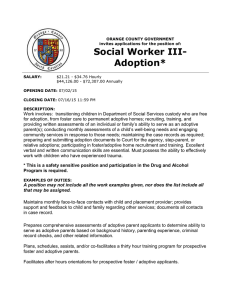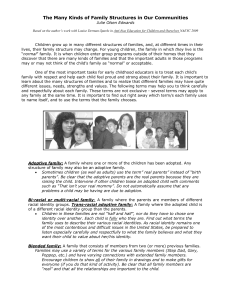MILLEMAN, ALEXANDER L., Ph.D., December 2011 Lifespan Development and Educational Sciences
advertisement
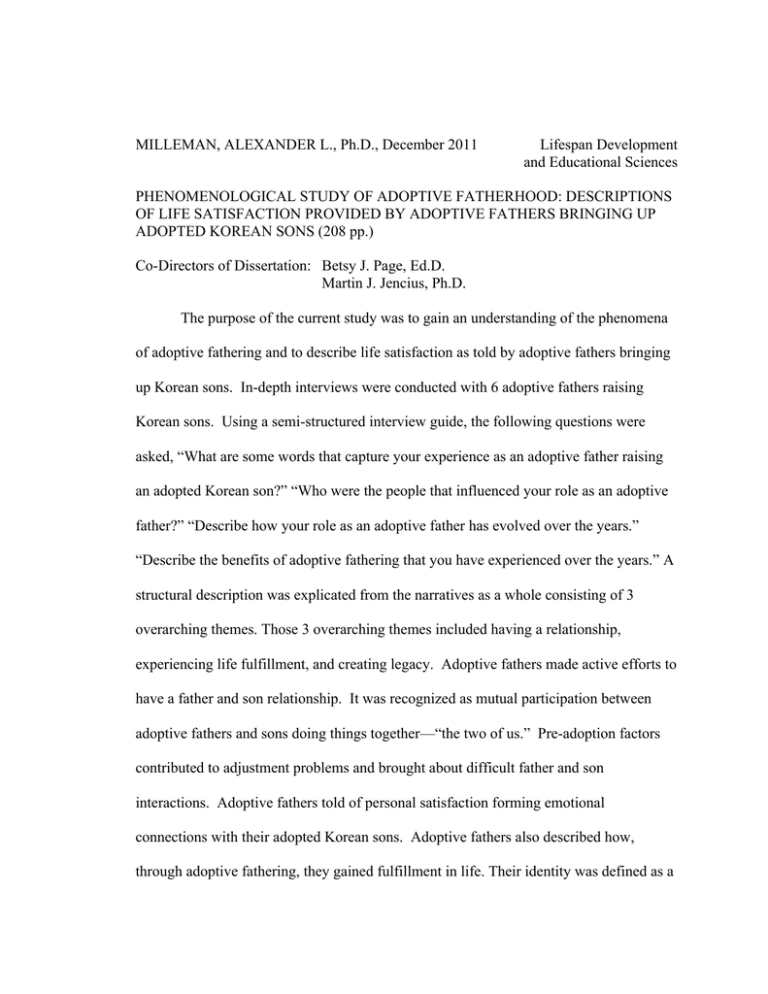
MILLEMAN, ALEXANDER L., Ph.D., December 2011 Lifespan Development and Educational Sciences PHENOMENOLOGICAL STUDY OF ADOPTIVE FATHERHOOD: DESCRIPTIONS OF LIFE SATISFACTION PROVIDED BY ADOPTIVE FATHERS BRINGING UP ADOPTED KOREAN SONS (208 pp.) Co-Directors of Dissertation: Betsy J. Page, Ed.D. Martin J. Jencius, Ph.D. The purpose of the current study was to gain an understanding of the phenomena of adoptive fathering and to describe life satisfaction as told by adoptive fathers bringing up Korean sons. In-depth interviews were conducted with 6 adoptive fathers raising Korean sons. Using a semi-structured interview guide, the following questions were asked, “What are some words that capture your experience as an adoptive father raising an adopted Korean son?” “Who were the people that influenced your role as an adoptive father?” “Describe how your role as an adoptive father has evolved over the years.” “Describe the benefits of adoptive fathering that you have experienced over the years.” A structural description was explicated from the narratives as a whole consisting of 3 overarching themes. Those 3 overarching themes included having a relationship, experiencing life fulfillment, and creating legacy. Adoptive fathers made active efforts to have a father and son relationship. It was recognized as mutual participation between adoptive fathers and sons doing things together—“the two of us.” Pre-adoption factors contributed to adjustment problems and brought about difficult father and son interactions. Adoptive fathers told of personal satisfaction forming emotional connections with their adopted Korean sons. Adoptive fathers also described how, through adoptive fathering, they gained fulfillment in life. Their identity was defined as a father, rather than an adoptive father. Finally, adoptive fathers described how passing on positive memories of a father and son relationship to their adopted son was important. Adoptive fathers described an active, intentional effort to create a memory of a father and son relationship different from adoptive father’s own experience with his father. Two invariant themes emerged. One invariant theme reflected adoptive fathers experiencing behaviors from others that seemed like racism. Also, bringing up a Korean son offered adoptive fathers cross-cultural experiences they might have not experienced otherwise. Implications of the findings to counselor education, limitations of the study and suggestions for future research are provided

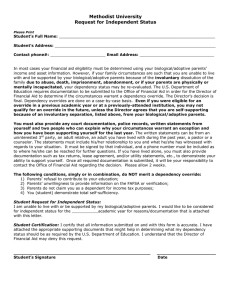
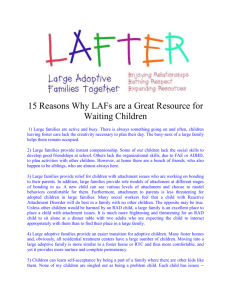
![IN SUPPORT OF [BILL/LOCAL LAW/ORDER #] TO PREVENT](http://s3.studylib.net/store/data/007674137_2-0977e9eebbd334a0536cbc5b9f940004-300x300.png)
